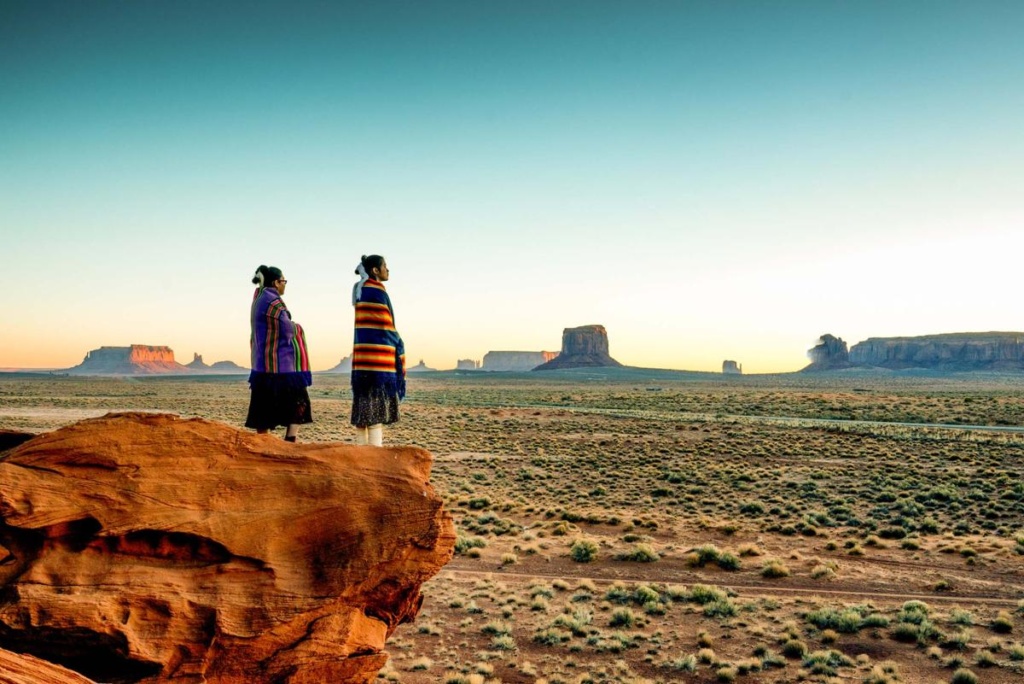Works Consulted
Alonso, J. (2016). Colombia, Ecuador y Perú apuestan por incluir un enfoque indígena en la gestión de los bosques. p.dw.com/p/1IsR5
Beck, S., & Forsyth, T. (2020). Who gets to imagine transformative change? Participation and representation in biodiversity assessments. Environmental Conservation, 1-4. doi.org/10.1017/S0376892920000272
Comberti, C., Thornton, T., & Korodimou, M. (2016). Addressing Indigenous Peoples’ marginalisation at international climate negotiations: Adaptation and resilience at the margins. Social Science Research Network. doi.org/10.2139/ssrn.2870412
Crossen, J. (2017). Another Wave of Anti-Colonialism: The Origins of Indigenous Internationalism. Canadian Journal of History 52(3), 533-559. doi.org/10.3138/cjh.ach.52.3.06
Daes, E-I. (2000). Indigenous Peoples and their relationship to land. E/CN.4/Sub.2/2001/21. digitallibrary.un.org/record/419881?ln=en
Daes, E-I. (2009). The contribution of the Working Group on Indigenous Populations to the genesis and evolution of the UN Declaration on the Rights of Indigenous Peoples. In C. Charters & R. Stavenhagen (Eds.), Making the declaration work (pp. 48-77) IWGIA.
Dahl, J. (2012). The Indigenous space and marginalized peoples in the United Nations. Palgrave Macmillan.
Dupuits, E., & Conkleton, P. (2020). Indigenous tenure security and local participation in climate mitigation programs: Exploring the institutional gaps of REDD+ implementation in the Peruvian Amazon. Environmental Policy and Governance 30(4), 209-220. doi.org/10.1002/eet.1888
Frechette A., Reytar, K., Saini, S., & Walker, W. (2016) Toward a global baseline of carbon storage in collective lands. Rights and Resources Initiative. rightsandresources.org/wp-content/uploads/2016/10/Toward-a-Global-Baseline-of-Carbon-Storage-in-Collective-Lands-November-2016-RRIWHRC-WRI-report.pdf
Gram-Hanssen, I., Schafenacker, N., & Bentz, J. (2021). Decolonizing transformations through ‘right relations.’ Sustainability Science. doi.org/10.1007/s11625-021-00960-9
Löfmarck, E., & Lidskog, R. (2017). Bumping against the boundary: IPBES and the knowledge divide. Environmental Science & Policy, 69, 22–28. doi.org/10.1016/j.envsci.2016.12.008
Powless, B. (2012). An Indigenous movement to confront climate change. Globalizations 9(3), 411–424. doi.org/10.1080/14747731.2012.680736
Schabus, N. (2017). Traditional knowledge. In E. Morgera & J. Razzaque (Eds.), Biodiversity and nature protection law (pp. 264-279). Elgar.
Tauli-Corpuz, V. (1999). Thirty years of lobbying and advocacy by Indigenous Peoples in the international arena. Indigenous Affairs 1, 4–11.
Tauli-Corpuz, V., Alcorn, J., Molnar, A., Healy, C., & Barrow, E. (2020). Cornered by PAs: Adopting rights-based approaches to enable cost-effective conservation and climate action. World Development 130, 104923. doi.org/10.1016/j.worlddev.2020.104923
Wallbott, L., & Recio, E. (2018). Practicing human rights across scale: Indigenous peoples’ affectedness and recognition in REDD+ governance. Third World Thematics 3(5–6), 785–806. doi.org/10.1080/23802014.2018.1599691



